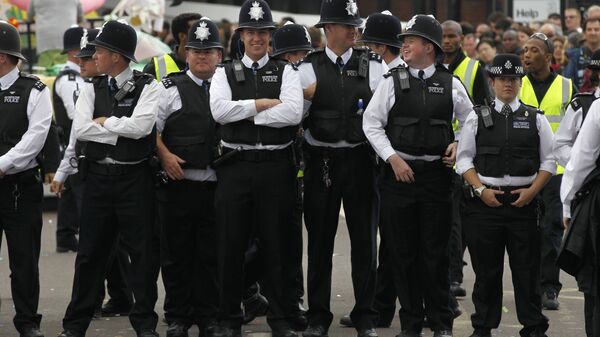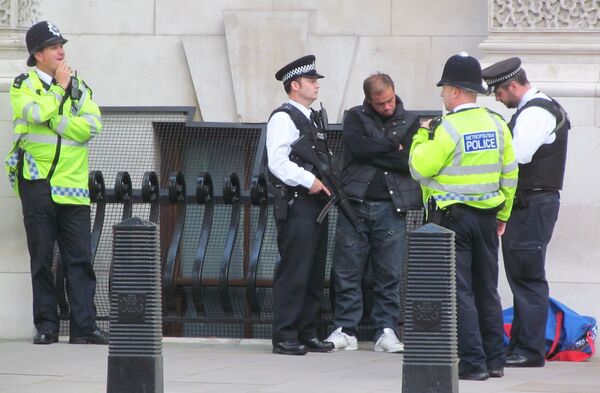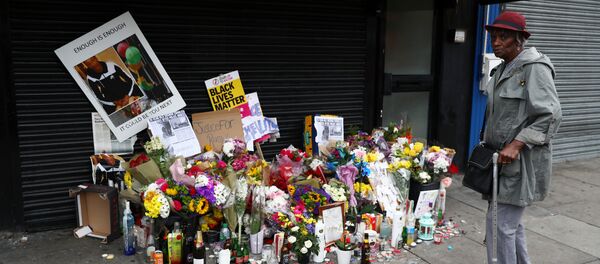The database, dubbed the Law Enforcement Data Service (LEDS), will amalgamate two existing stores of information — the Police National Computer (PNC), which records criminal convictions, and the Police National Database (PND), a vast store of gathered intelligence — as well as all information held on various other police data repositories.
This includes sensitive information on victims of crime, individuals who've been cleared of any wrongdoing, and other content unrelated to criminal activities — such as driver and vehicle records, around 55 million in number apiece.
Oh Liberty!
In the lead up to LEDS' implementation, the Home Office convened consultation meetings with rights organizations and privacy experts, to discuss potential issues. However, on October 1 advocacy group Liberty announced they were quitting in protest. Hannah Couchman, the organization's Advocacy and Policy Officer, said given the database posed a "serious risk" to citizens' rights, and the Home Office had failed to "respond sufficiently" to their concerns, Liberty couldn't be part of a process "that gives a free pass to creeping expansion of digital policing" and "shows contempt" for privacy rights.
"This unprecedented development will see the Government amass deeply sensitive data for policing purposes, [requiring] rigorous scrutiny and debate to make sure our personal information is protected, with robust safeguards to protect us from threats to our privacy and other fundamental rights. The Home Office has made clear to us that the consultation will exclude discussion of our key concerns with the plan," Couchman wrote.
She went on to state information on the database will be "vulnerable in many ways", and the plans "fail to explain" how police will use the system in conjunction with the "creeping progression of surveillance and algorithmic policing".
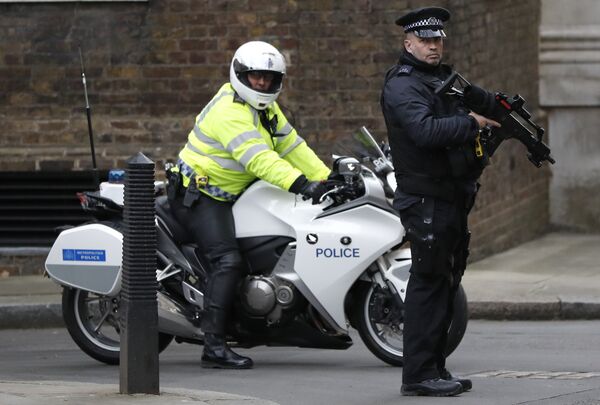
In response, Home Office spokesperson said the PNC and PND were "vital tools used every day by the police to safeguard the public, prevent crime and bring perpetrators to justice", but were "nearing the end of their lives".
"By bringing them together onto a single joined-up platform, LEDS will ensure existing capabilities are maintained. This is a complex project and that's why we're continuing to engage constructively with civil society organizations on its development to ensure the use of personal data is proportionate and respects the privacy of individuals," they added.
Long-Term Objective
Liberty's walkout barely registered in the mainstream media, but Kevin Blowe, Coordinator at the Network for Police Monitoring, believes the development significant.
"Their decision to step away is commendable. They clearly understand the Home Office hasn't the slightest interest in actually listening to their anxieties, and actually only really care about creating the illusion of there being independent input into the database's construction, so they can claim civil liberty concerns were taken into account when making it. Netpol were invited to contribute but we refused — we had no interest whatsoever in lending a veneer of legitimacy to a terrifying new initiative the government seems absolutely determined to implement," Kevin told Sputnik.
Kevin suggests the impending super database feeds into a wider objective on the part of the Whitehall — building a total surveillance state, in which no citizen's life is truly private. Unbeknownst to many, UK police already gather and retain "astonishing" amounts of data on citizens totally unrelated to crime, including vehicle movements, political affiliations, potential gang involvement or connections, and millions of images, among other things.
What's more, it's difficult for individuals to know what information authorities hold on them, much less actually access it — "in many cases, this could amount to an extremely detailed and personal profile of someone, even if they are not and never have been involved in criminal activity or even accused of it," he laments.
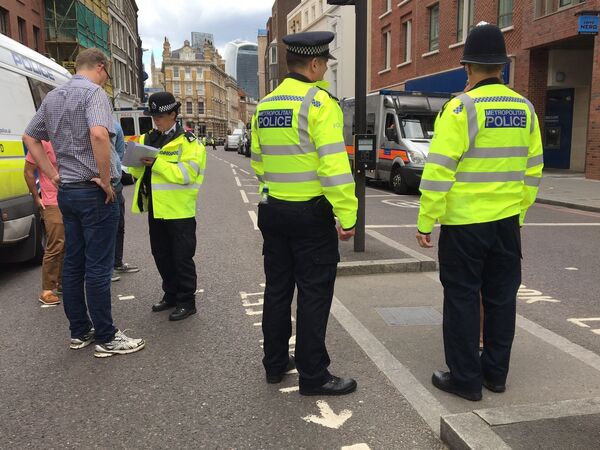
"Police have long-wanted to combine all these together into one giant directory, and this is the latest and boldest attempt, pooling more information, and granting more people access to that information, than ever before. This gives rise to many obvious significant civil liberties concerns, but in practical terms, the idea this system would be in any way secure is simply laughable — every year, police officers across the country are disciplined for misuse of the PNC, and the information contained on that database is much less extensive than what'll end up on the super database," Kevin told Sputnik.
PNC misuse is a widespread issue, but little-acknowledged in the mainstream media — while particularly egregious individual cases (such as in May, when a Welsh police officer with a previous conviction for sharing extreme pornography via WhatsApp was found to have repeatedly used the system for non-police purposes) occasionally make headlines, data on the overall number and nature of PNC abuses isn't readily published by police forces.
However, it was reported in 2013 the number of Metropolitan Police officers investigated for PNC misuse had more than doubled in five years, and between 2009 — 2013, 76 officers in London had faced censure for inappropriately accessing data, with suggestions some had even altered information.
Minority Report
Unsettlingly, other elements of the super database may be even greater cause for concern — for the Home Office tender document also calls for the resource to be equipped with the ability to "analyze data to identify links between people, objects, locations and events".
Such as provision, Kevin believes, is the latest indication of authorities' increasing tendency towards pre-emptive, ‘pre-crime' policing — and means many innocent individuals, who've never been convicted of, or even arrested for, any crime may be labelled potential criminals, and become subject to surveillance, monitoring and harassment.
Kevin's fears certainly aren't baseless alarmism. Responding to the widespread civil unrest that took place in 2011 across London and other major UK cities, the Metropolitan Police launched the Gangs Violence Matrix in 2012. The database contains the names and personal information of many individuals dubbed ‘gang nominals', who are suspected of having connections to known criminals — algorithms are used to create an automated ranking for each, ranging from red to green, predicting their propensity towards criminal activity and violence.
Similarly, at least 40 percent of the individuals named on the Matrix are not recorded as being involved in violent crime — but their inclusion means they may be precluded from educational and vocational opportunities as a result, and subject to enhanced police scrutiny and 'intelligence-led' stop and search. There are even suggestions the Matrix has the potential to increase offending behaviour, as individuals being repeatedly stopped and searched may lose their temper during interactions with police and be arrested for public order offences.
Sputnik reached out to the Home Office for comment, but as of October 15 is yet to receive a response.
The views and opinions expressed by the speaker do not necessarily reflect those of Sputnik.

